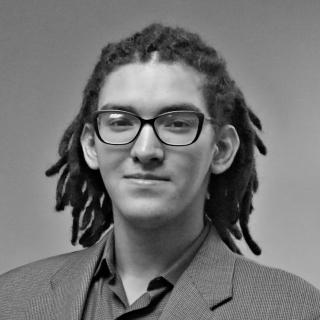
Stopping health inequity, and the impact of social determinism
Factors of home life and where you live can impact both individual health and the wellbeing of entire communities.
On September 9th, Amplify Philly held the B. PHL Innovation Fest, hosting several conference rooms for subject matter experts to come and discuss a variety of topics. One such topic was the discussion of how social determinants impact health and the achievement of health equity.
Speaking at the event were guest speakers Sophia Ononye-Onyia, PhD, MPH, MBA, with 15 years of experience in biopharmaceutical industry; Seun O. Ross, PhD, who is the executive director of Health Equity for Independence Blue Cross and has two decades of experience in healthcare; Dr. Frank Franklin, PhD, J.D., MPH, who is currently the Deputy Health Commissioner at Philadelphia’s Department of Health; Gladys Antelo-Allen, a Senior Program Manager with the Field Building & Resources Dept. at the Camden Coalition of Healthcare Providers.
The panel was moderated by Barbara Williams-Page, D.O., MBA, FACOFP, who is a family medicine doctor in Philadelphia, PA with 25 years of experience practicing medicine.
Social determinants – like where a person lives, where they were born, where they work – have overlap with health inequalities, Dr. Ross explained. This means that if the areas where you spend your time do not lend themselves to a healthy existence, health equity is not possible.
“You want to close all these inequities that exist in healthcare, but in order to do that you have to go fix the social determinisms,” Dr. Ross said.
But while these two things affect each other, it is important to note that they are not the same, as health equity is only the closing of gaps that are present in some areas.
When discussing social health, Dr. Franklin spoke about how there was no universal solution to health inequality. What might work in one city would not necessarily be as effective, if at all.
“We have the tools to identify what the disparities are: the who, the what, the where the when; but we don’t use the tools often enough to hone in on the how and the why,” Dr. Franklin said.
But when looking at the causes of these inequalities, motivations such as racism were universally the same in origin, but would develop differently depending on location, each requiring their own solutions to solve.
RELATED CONTENT
On how to close the gap in inequity, Dr. Franklin advised to bring together those who have experienced the problems first hand with subject matter experts who have access to data and information so they can work together to bridge inequalities, such as overcoming vaccine hesitancies.
A possible way to reach out to these people is through social media. Despite its reputation as a younger generation’s area, it is an effective tool at reaching community leaders and spreading information.
As people seek to bridge inequities, Antelo-Allen advocates that being physically present and listening to the needs of patients is a must to build a relationship with the people impacted by health inequity. She holds that these patients are the subject matter experts with first hand experience with the inequity issues.
“These are the folks that are experiencing those complexities that can tell us the How, how to solve these issues… many of the folks have experienced lots of trauma. With trauma there is mistrust, so we’re moving at the speed of trust. It takes time… But we don’t always have the luxury of time,” Antelo-Allen said.
For someone to be able to get that information, they must overcome the barrier of trauma that comes with suffering through inequality, to build trust with individuals and communities, bring them to the table, and uplift their voices so they can advocate for themselves.
“If you want to make a difference, it starts with you and you pursue it through your work, through your personal hobbies, whatever the case may be,” Dr. Ononye-Onyia said. “You cannot actually change without wanting change.”
“And so what I try to do with my multicultural background… is to pursue the things that make a difference,” she continued. “Amplifying your voice helps somebody.”










LEAVE A COMMENT: